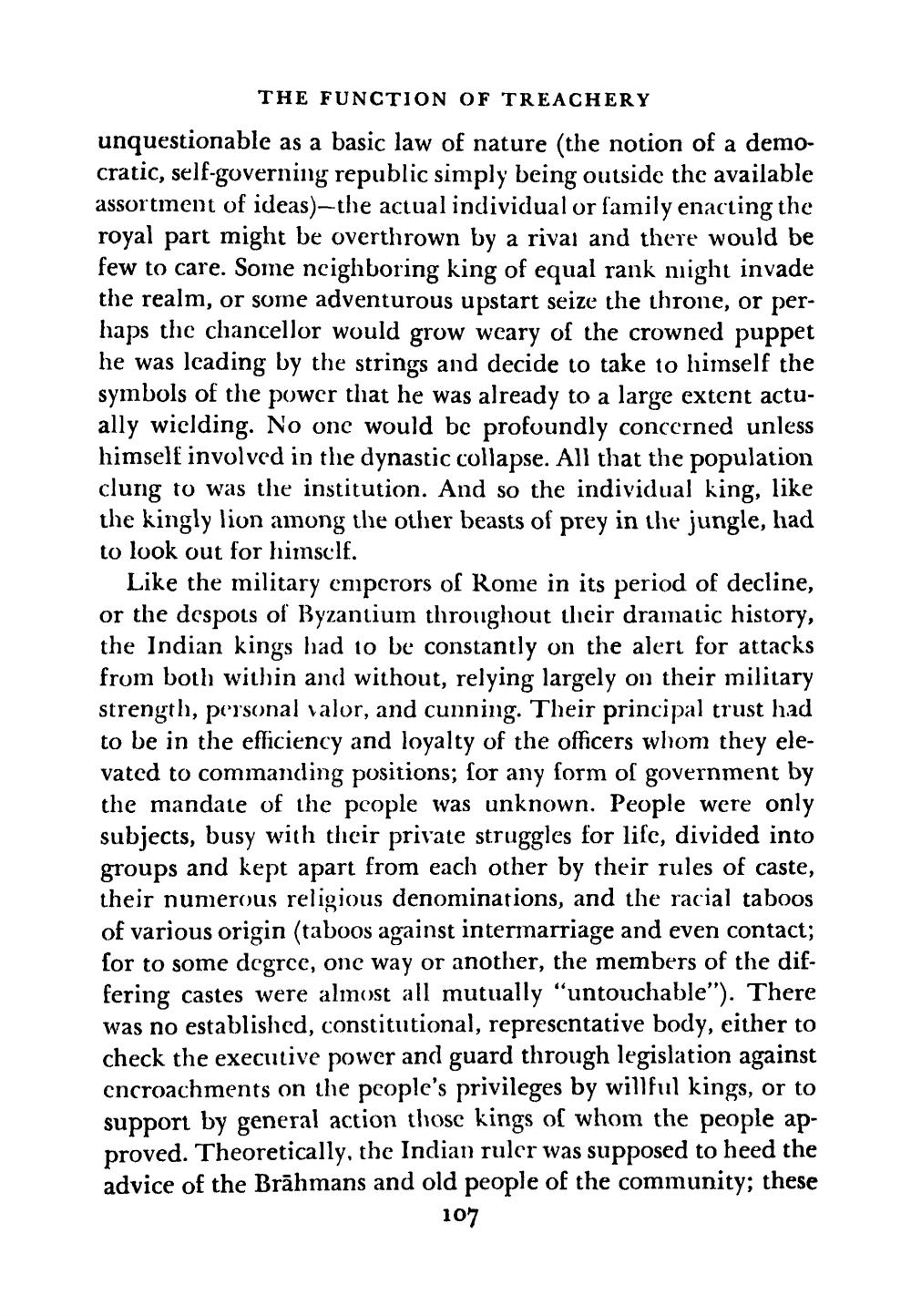________________
THE FUNCTION OF TREACHERY unquestionable as a basic law of nature (the notion of a democratic, self-governing republic simply being outside the available assortment of ideas)-the actual individual or family enacting the royal part might be overthrown by a rival and there would be few to care. Some ncighboring king of equal rank might invade the realm, or some adventurous upstart seize the throne, or perhaps the chancellor would grow weary of the crowned puppet he was lcading by the strings and decide to take to himself the symbols of the power that he was already to a large extent actually wielding. No one would be profoundly concerned unless himself involved in the dynastic collapse. All that the population clung to was the institution. And so the individual king, like the kingly lion among the other beasts of prey in the jungle, had to look out for himsclf.
Like the military emperors of Rome in its period of decline, or the despots of Byzantium throughout their dramatic history, the Indian kings had to be constantly on the alert for attacks from both within and without, relying largely on their military strength, personal valor, and cunning. Their principal trust had to be in the efficiency and loyalty of the officers whom they elevated to commanding positions; for any form of government by the mandate of the people was unknown. People were only subjects, busy with their private struggles for life, divided into groups and kept apart from each other by their rules of caste, their numerous religious denominations, and the racial taboos of various origin (taboos against intermarriage and even contact; for to some degrce, one way or another, the members of the differing castes were almost all mutually "untouchable"). There was no established, constitutional, representative body, either to check the executive power and guard through legislation against cncroachments on the people's privileges by willful kings, or to support by general action those kings of whom the people approved. Theoretically, the Indian ruler was supposed to heed the advice of the Brāhmans and old people of the community; these
107




